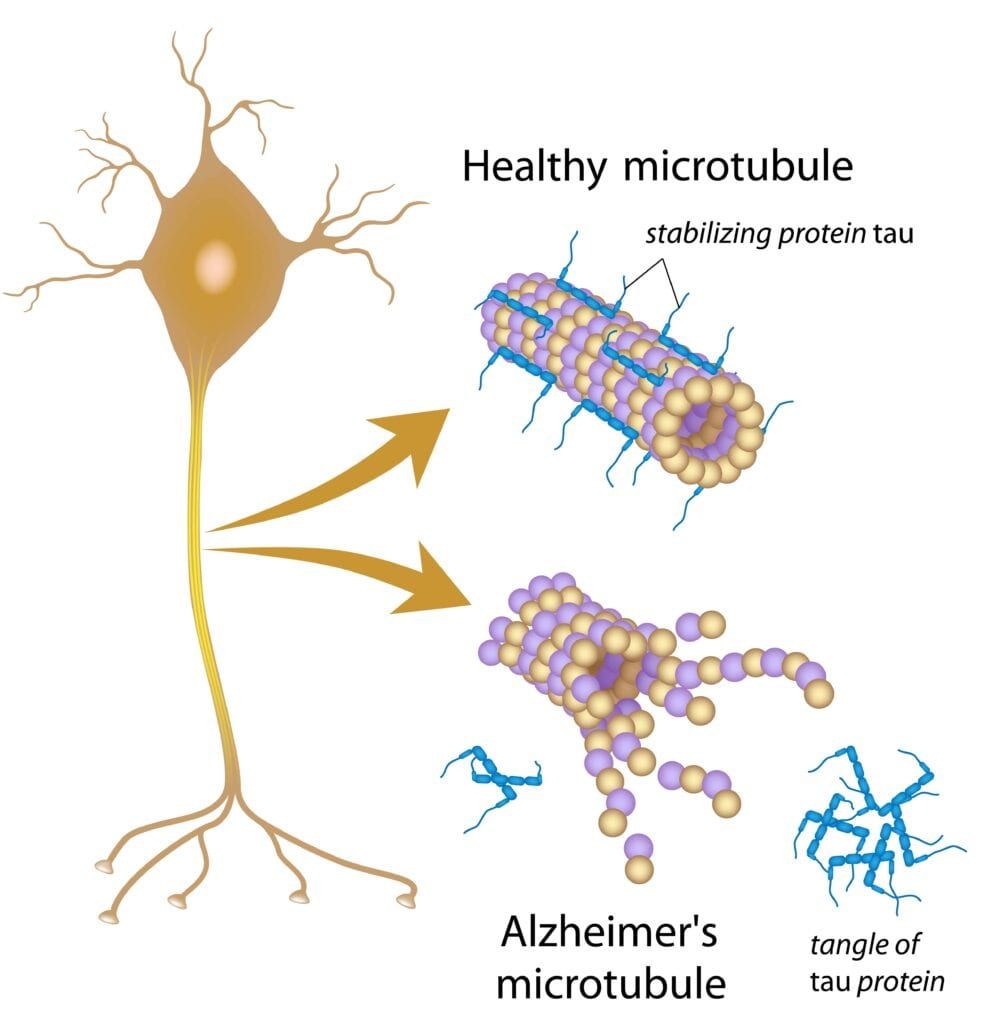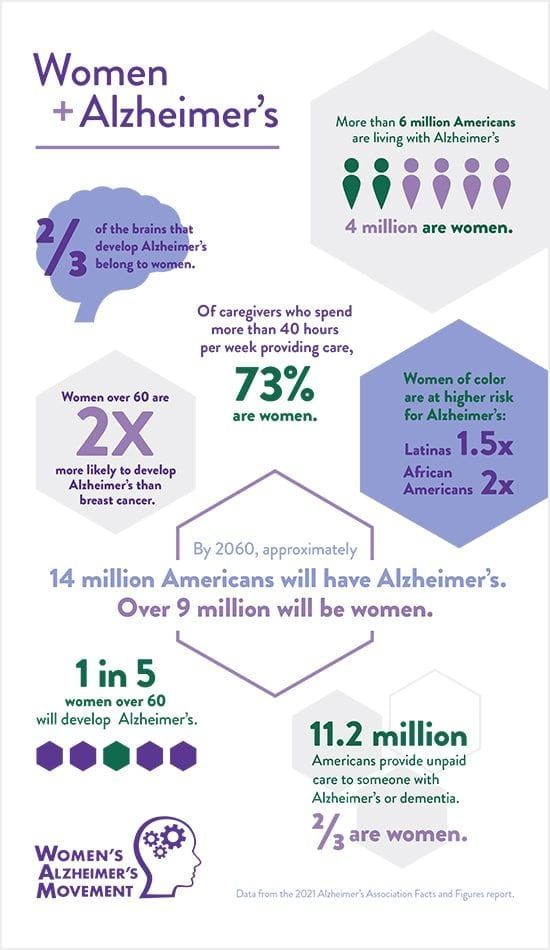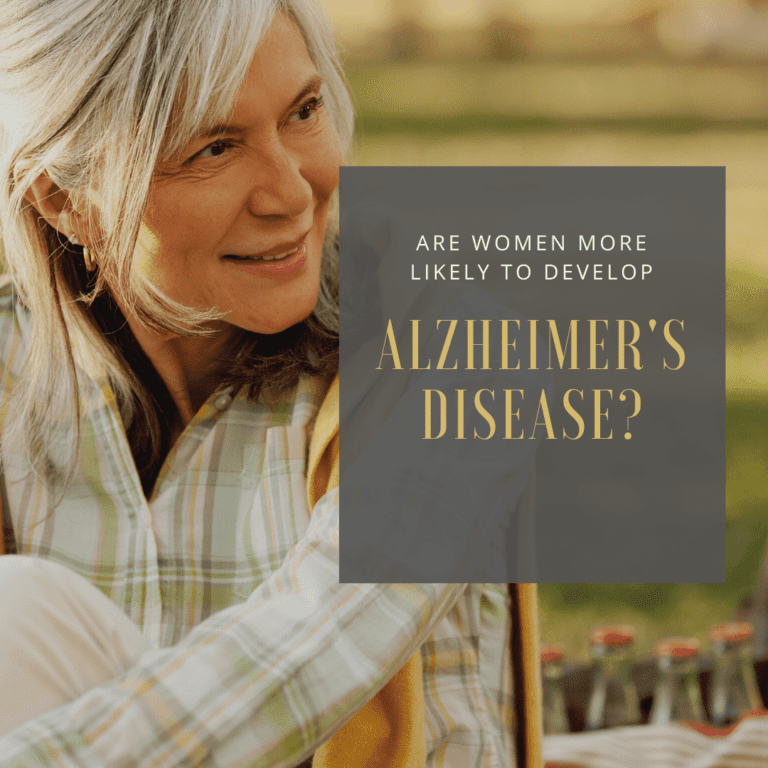When it comes to diseases such as Alzheimer’s, many people like to say that the disease does not discriminate and can affect anyone. While this is certainly true, there are uncontrollable factors that can make certain individuals more susceptible to developing Alzheimer’s disease than others. Recently, one of these potential factors has been identified as biological sex.
Sometime around 2010, researchers began to notice that two out of every three people diagnosed with Alzheimer’s disease were women. They also found that women of color were at an increased risk of developing the disease. Since this discovery, researchers have been evaluating the relationship between women and Alzheimer’s disease to determine why it affects more women than men. In a 2020 issue of Neurology, the official journal of the American Academy of Neurology, an article was released that brings us closer to understanding this relationship.
The Basics of Alzheimer’s

In order to understand the association between women and Alzheimer’s, however, one must first have a basic understanding of what Alzheimer’s disease is and how it affects the brain. For starters, Alzheimer’s disease is a type of dementia that can cause symptoms such as forgetfulness, language impairment, difficulty with time management, or inability to recognize close friends or family members.
Alzheimer’s can cause the growth of a protein known as beta-amyloid. When clumps of beta-amyloid join together, they form something called plaque. Unfortunately, these plaque deposits interfere with signals sent between synapses in the brain. Currently, researchers are not sure whether beta-amyloid causes Alzheimer’s or if Alzheimer’s causes the production of beta-amyloid, nevertheless its presence is one of the earliest signs of the disease. Alzheimer’s also causes tangles of tau protein fibers to build up in the cells, ultimately leading to brain cell death. The combination of interrupted signals and brain cell death are responsible for causing the symptoms associated with Alzheimer’s.
Why Women are More Likely to Be Affected Than Men

According to the Women’s Alzheimer’s Movement website, a woman in her 60s is more likely to develop Alzheimer’s than breast cancer. In the past, many researchers attributed the phenomenon of more Alzheimer’s cases in women to the fact that women simply lived longer than men. However, more research has started to suggest that there are other factors at play. In fact, the article titled “ Sex-Driven Modifiers of Alzheimer Risk” identifies female sex hormones as a potential factor that can explain why women are more likely to develop the disease over men.
The study evaluated 85 women and 36 men who were considered to be cognitively normal and between the ages of 40 and 65 years old. Clinical, medical, hormonal, and lifestyle risk factors for Alzheimer’s disease were assessed in each participant. Additional testing methods such as MRI and PET scans were used to assess each participant’s brain. PET amyloid imaging was used to detect and measure the presence of beta-amyloid, PET glucose was used to evaluate brain function, and MRI was used to measure the amount of neurodegeneration.
After processing the data, it was found that the female participants exhibited higher amounts of plaque deposition, regardless of age. It was also found that women had lower FDG glucose metabolism, suggesting reduced brain function and lower MRI gray and white matter, indicating higher levels of neurodegeneration. Besides simply being female, researchers also noticed that women who had undergone menopause were more likely to have brain biomarker differences. Other potential factors that could increase the risk of Alzheimer’s were identified such as: hormone therapy, hysterectomy status, and thyroid disorders.
However, it was also found that women taking estradiol hormone therapy had less severe changes compared to other women. While this could suggest a possible relationship between estrogen and changes in the brain, more research is needed to confirm this hypothesis. This study, in particular, was too small and not designed to show cause and effect. Therefore, more research is needed to determine if there is a link between estrogen and changes in the brain that can lead to Alzheimer’s disease, as well as why these changes occur in some women but not others.
How Does Alzheimer’s Affect Women?

Dr. Lisa Mosconi, PhD and founder of the Women’s Brain Initiative, notes that for every man diagnosed with Alzheimer’s, there are two women who also have the disease. However, Alzheimer’s disease presents differently in women than it does in men. For starters, Alzheimer’s-related brain changes start to occur during midlife for women, while they generally don’t start until later in men. It has also been found that the rate of brain cell death is faster in women than it is in men.
Since the disease can present differently in women, it may not immediately be diagnosed. For example, one of the first steps in diagnosing dementia is a verbal memory test. Women, however, have been found to have better memory when it comes to words and verbal items. Because of this, a woman affected by dementia may easily pass a verbal memory test while still being affected by mild memory and thinking problems. This ultimately means that women are less likely to receive an early diagnosis.
How to Prevent Alzheimer’s Disease in Women
Although it is not yet known if Alzheimer’s can be prevented, research shows that there may be ways to reduce the risk. Generally speaking, Alzheimer’s prevention deals with reducing risk factors such as heart disease and head injury. It is also recommended to eat a healthy diet, stay socially active, avoid tobacco and excess alcohol, and exercise the body and mind to promote healthy aging.
In women, however, preventing Alzheimer’s may also be related to managing estrogen levels after menopause. As Mosconi puts it, “Our data indicate that hormonal factors need to be a strong focus of Alzheimer’s prevention strategies in women”. Therefore, managing menopause with hormone replacement therapy may be one key way to prevent Alzheimer’s in women.
Overall, researchers are slowly making progress in determining how Alzheimer’s affects the brain and how these changes can occur differently in males and females. Identifying estrogen as a possible biomarker could change the way Alzheimer’s is diagnosed and treated. While much research still needs to be done, every new development puts things in the right direction.

Dr. Kashouty, a diplomate of the American Board of Psychiatry and Neurology (ABPN), practices general neurology with fellowship trained specialization in clinical neurophysiology. Dr. Kashouty finds the form and function of the nerves and muscles the most interesting part of neurology, which is what led him to specialize in neurophysiology with more emphasis on neuromuscular conditions. He treats all neurological diseases, but his main focus is to treat and manage headaches, movement disorders and neuromuscular diseases.




